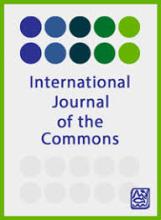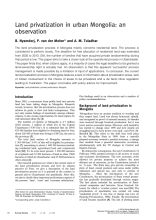/ library resources
Showing items 1 through 9 of 9481.The state owns over 80% of the land in Sri Lanka. The remainder is owned by private parties.
This manual outlines dispute resolution mechanisms, procedures and strategies that are or will be put in place by the Sri Lanka Ministry of Justice’s Special Mediation Boards (Land) to promote the resolution of a variety of housing, land and property disputes in the country.
ABSTRACTED FROM EXECUTIVE SUMMARY: Since its establishment in 1999, the Human Rights Commission of Malaysia (SUHAKAM) has been dealing with allegations of violations to indigenous customary rights to land, many of which have not been resolved.
Land has been one of the major concerning factors in escalating disputes and conflicts between ethnic groups in Sri Lanka, including the violation of minority rights.
In Timor-Leste, customary institutions contribute to sustainable and equitable rural development and the establishment of improved access to and management of land, water and other natural resources.
Climate warming and human actions both have negative impacts on the land cover of Mongolia, and are accelerating land degradation.
The land privatization process in Mongolia mainly concerns residential land. The process is considered to perform slowly. The deadline for free allocation of residential land was extended from 2005 to 2013.
National land information system (NLIS) is an essential part of the Mongolian land reform. NLIS is a web based and centralized system which covers administration of cadastral database all over the country among land departments.
The narrative of rapid urbanisation in relation to inadequate planning, governance and management regimes in Nigeria is well-rehearsed.
Pagination
Land Library Search
Through our robust search engine, you can search for any item of the over 73,000 highly curated resources in the Land Library.
If you would like to find an overview of what is possible, feel free to peruse the Search Guide.









